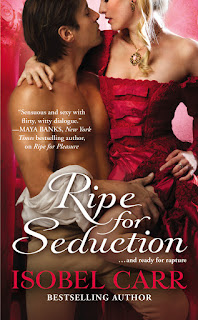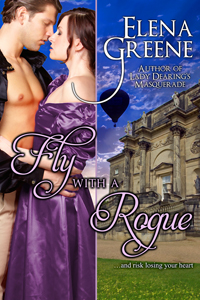Disastrous Marriages and Other Sources of Inspiration

When I see a book about the ruin of a Georgian marriage, I can’t resist adding it to my shelves, not because I enjoy reading about unhappy people, but because those real life disasters inspire me to create alternate fictional endings. I’m a sucker for second chances (as you may well have guessed if you’ve read my books, since at least one of the two main characters in every book is getting one).
My current release, RIPE FOR SEDUCTION, was inspired by a snippet of a story in A. Calder-Marshall’s The Grand Century of the Lady. Poor Lady Mary Coke married a rake and almost immediately repented it. Their marriage was violent. When she ran away, he dragged her back and imprisoned her. Eventually, her family managed to secure a legal separation for her, and then her husband did her the curtsey of dying young. But of course such an infamous young woman would inspire men very like her unlamented husband to see if they could seduce her. One such young rake, was fool enough to put his offer into writing, and Lady Mary, in high dudgeon, took her revenge by announcing to his parents that he had made her an offer of marriage and daring him to call her a liar.
Lady Mary let the rake off the hook, and went on to have a sad, somewhat horrid sounding life. But the idea of using that story as a jumping off place was irresistible. Other books I find indispensible in understanding life, marriage and divorce in my chosen era include Lawrence Stone’s Road to Divorce, Broken Lives, and The Family, Sex, Marriage (he’s quite prolific on the subject). Stone’s books detail rotten husbands, licentious wives, and the means by which they sought to escape and punish one another.
And then there’s the case of the lady who had an affair with her groom. Who was her husband’s star witness? The woman’s maid. Lady’s maids were often called upon to testify about the most intimate details of the woman’s life. And who were they loyal to? The husband (who paid their wages and who could pay them for their testimony and give them a letter of reference).
I also spend a good deal of time curled up with books like Sex in Georgian England by A.D. Harvey, Sex in History by Reay Tannahill, and The Origins of Sex by Framerz Dabhoiwala. Understanding how your characters would have thought about themselves as sexual beings, as well as how they would have viewed the act in general, as well as concepts of chastity, virtue, vice, and just how marriage fit into it all, also provides great fodder for storytelling and characterization.
Next up for me is London’s Sinful Secret: The Bawdy History and Very Public Passions of London’s Georgian Age by Dan Cruickshank. I’m hoping that somewhere within its 500+ pages I’ll find the kernel of Anthony Thane’s story. Wish me luck!



Comments
Post a Comment